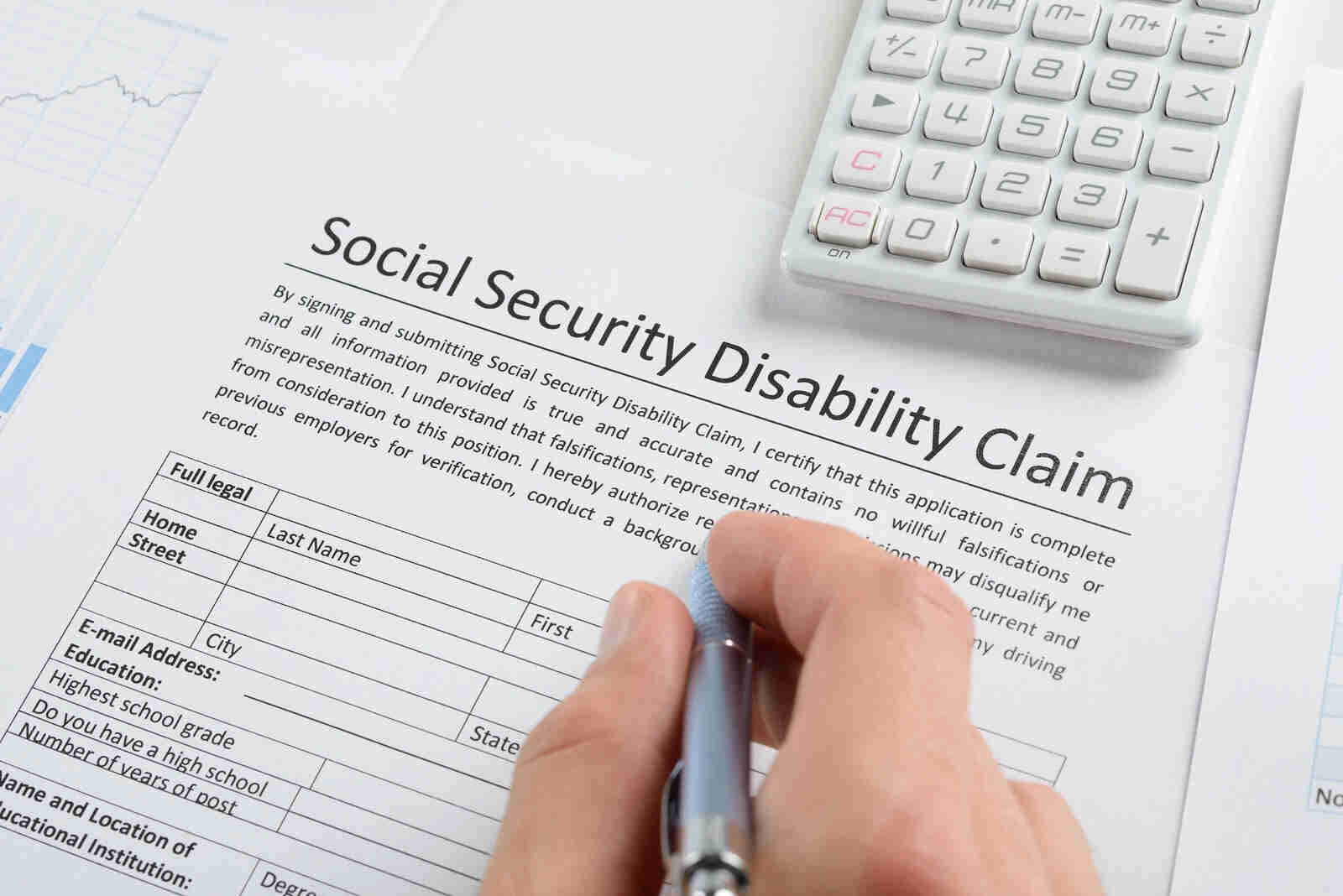What’s the Difference Between SSDI and SSI?
Though both handled by the Social Security Administration (SSA), Social Security Disability Insurance (SSDI) and Supplemental Security Income (SSI) benefits are vastly different things.
Fortunately, our Social Security/disability lawyers are here to give a simple breakdown of these terms – and what they stand for – so the next time you encounter them you can stay informed. Simply put, SSDI benefits are for individuals with sufficient earning records who can no longer work because of a disability. On the other hand, SSI benefits are for individuals with qualifying medical conditions who also have little to no financial support or income. To get either type of benefit, you must submit an application to the Social Security Administration. If your claim is denied, you can file an appeal. Most likely, if you are eligible for SSDI benefits, you will not be eligible for SSI benefits, and vice versa.
You can call our disability lawyers at (215) 515-2954 in Pennsylvania or (609) 557-3081 in New Jersey to get a free case review from Young, Marr, Mallis & Associates.
What Are Supplemental Security Income (SSI) Benefits?
Supplemental Security Income is a need-based financial assistance program maintained by the federal government. Benefits are paid out to individuals with disabilities that prevent them from earning an income.
Of course, the funds for SSI benefits come from general taxpayer dollars, which means all those paying federal taxes pay into the program whether they want to or not. Supplemental Security Income is a “means tested” program, meaning you must possess $2,000 or less in total assets and earn a very limited income. Qualifying for SSI may not mean you’re eligible for other forms of aid, though limited finances generally make it easier to obtain food stamps, insurance through Medicaid, and other help from assistance programs operated at the state level.
You do not have to have an earning record to qualify for SSI benefits. Eligible adults and children with qualifying disabilities can get regular SSI benefits.
What Are Social Security Disability Insurance (SSDI) Benefits?
Social Security Disability Insurance benefits come from the Social Security Administration and are funded through payroll taxes across the nation. Everyone who pays taxes from working contributes to the fund and may access it upon obtaining sufficient work credits and meeting other eligibility criteria, including suffering from a condition that limits their functional capacity for at least 12 months.
This type of assistance is technically a form of insurance because every worker in the United States with sufficient working credits is “covered” under the plan. If you meet the criteria, you may begin receiving regular payments after the five-month waiting period has expired. The federal government imposes this waiting period for obtaining benefits on most applicants. However, once payments begin, the first check is usually a lump sum payment backdated to the original date of injury or qualifying illness, which can help you recover from any short-term financial consequences of going without aid. After receiving benefits from Social Security Disability Insurance for two years, you may become eligible for health coverage under Medicare.
Who Can Qualify for SSI or SSDI?
The differences between SSDI and SSI continue when it comes to eligibility. Both types of assistance fall to the Social Security Administration, which evaluates whether or not an individual qualifies for benefits.
There are myriad conditions that can qualify an individual for disability benefits. Impairments as varied as epilepsy, visual impairment, asthma, and burns are just a few of the health conditions listed by the SSA as potentially eligible disabilities. In addition to having a qualifying condition, SSI applicants must have little to no income or financial support to get regular payments.
Eligibility for SSDI benefits requires applicants to meet two requirements: have a sufficient earning record and a qualifying disability. Disabilities that make individuals eligible for SSDI benefits include various injuries, illnesses, and medical conditions. When or how you sustained your disability is irrelevant. You can contact our disability lawyers to determine if your disability makes you eligible for SSDI benefits.
Then there is the second part, which is having a sufficient earning record. You need to pay into the system to get SSDI benefits. This is done when your employer removes Social Security taxes from your paycheck. Generally, people with 40 work credits, or those who have worked more than ten years, can get SSDI benefits. If you sustained your disability before the age of 22, you might be able to get SSDI payments through your parent’s earning record.
When Do Recipients Get Their SSDI or SSI Payments?
Another big difference between SSDI and SSI payments is when recipients get their benefit checks. Both benefits are paid monthly but sent out on different dates.
All SSI payments are sent out on the first of the month. If the first of the month falls on a weekend, benefits will be paid the preceding Friday.
Social Security Disability Insurance benefits are also paid out monthly. Recipients of SSDI get their payments based on their date of birth. If your birthday falls between the first and the tenth, you will receive your benefit on the second Wednesday of the month. If your birthday falls between the 11th and the 20th, you will receive your check on the third Wednesday of the month. And, if your birthday falls between the 21st and the 31st, you will get your SSDI benefit on the fourth Wednesday of the month. If you receive SSDI payments through your parent’s earning record, the date you get your monthly check will depend on your parent’s birthday.
Both SSI and SSDI benefits can be sent via direct deposit. If you choose this method, you will receive your monthly benefit at midnight on your normal payment date. If you choose to get your check by mail, expect mailing delays from time to time. If you change your mailing address or bank account information, inform the Social Security Administration immediately so that you get your benefit on time. If you experience any delays regarding your monthly SSI or SSDI benefit, inform our disability lawyers right away.
Exceptions to Waiting Periods for SSDI and SSI Benefits
After applying for either SSI or SSDI benefits, expect to wait a bit before you receive your first check from the Social Security Administration.
The approval period for disability claims can be a lengthy one. The SSA wants to ensure that your disability and circumstances qualify you for federal assistance. It will review your medical records and, depending on the type of benefits you are seeking, your finances, and earning record. This can take several months.
Following SSDI approval, there will be a five-month waiting period. This applies to most SSDI claims. After the five-month waiting period is up and the SSA has confirmed your eligibility for benefits, you will have to wait one more month before you receive your first check.
As always, there are circumstances that allow you to claim SSDI benefits without a five-month waiting period. For example, if you were receiving payments from Social Security Disability Insurance and went back to work, only to become disabled once more, you won’t have to wait another five months. In addition, if you apply for benefits as the child of someone who is disabled, you won’t be subject to the waiting period. Furthermore, when applicants have certain conditions, such as ALS, the mandatory five-month waiting period is waived.
Appealing a Denial of SSDI or SSI Benefits
It is common for initial claims for disability benefits to be denied, especially if claimants do not apply with help from our attorneys. If you recently applied for SSDI or SSI benefits and the SSA denied your application, you can file an appeal.
The appeals process for denied SSDI and SSI claims is the same. Immediately after being informed that your claim was denied, contact our attorneys about preparing your case for appeal. We will gather updated medical records regarding your disability as well as other necessary information to prove your eligibility for benefits. Appeals requests can be made in writing or online through the SSA’s website.
There are four levels to the appeals process, depending on whether or not your claim continues to get denied. Appeals for SSDI and SSI benefits begin with a request for reconsideration. During this time, the SSA will review your initial claim as well as any updated information you have provided. If the SSA denies your claim again, you can get a hearing from an administrative law judge. From there, a review by the Appeals Council might take place. The last chance for appeal will be a federal court review.
Applications for SSDI and SSI benefits might be denied for a variety of reasons, including minor reasons such as clerical errors. Just because your claim for benefits was denied does not mean you are, in fact, ineligible to receive either SSI or SSDI payments. Hiring a team of seasoned legal professionals to handle your application for disability benefits can increase your chances for first-time approval and provide you with a knowledgeable resource as your application moves forward.
Other Differences Between SSDI and SSI Benefits
On their website, the SSA briefly describes the difference between its various disability programs. Even so, the differences between SSDI and SSI benefits continues to elude many.
First of all, you’ll need to apply for disability benefits, regardless of the type you wish to receive. If you qualify for disability benefits, the payment you receive will be calculated differently depending on which program you’ve entered. In the SSDI program, the monthly amount you receive is calculated based upon your lifetime earnings, on average, prior to your disability affecting your work. With SSI, the monthly payment is based on need, and varies from state to state. The good news is that Pennsylvania is one of the states which offers a state supplement.
“Social Security is only for the elderly,” is a common misconception that should be cleared up. While SSDI does carry the stipulation that the disability must have begun before the age of 22 was reached, both SSDI and SSI can in fact be granted to children and young adults.
Another key difference is that in the SSDI program, whatever the impairment, the expectation is that it will either last for a minimum of 12 months or end in the recipient’s death.
Medical coverage is another area where SSDI and SSI take a divergent approach. With SSDI, the worker in question will automatically receive Medicare coverage after two years of receiving benefits. With SSI, on the other hand, the individual automatically receives Medicaid. (In Pennsylvania, dual eligibility is a possibility, as detailed by the Pennsylvania Health Law Project.)
Call Our Lawyers to Discuss Your Case
To have the Pennsylvania disability lawyers at Young, Marr, Mallis & Associates analyze your case for free, call us today at (215) 515-2954 in Pennsylvania or (609) 557-3081 in New Jersey.






























